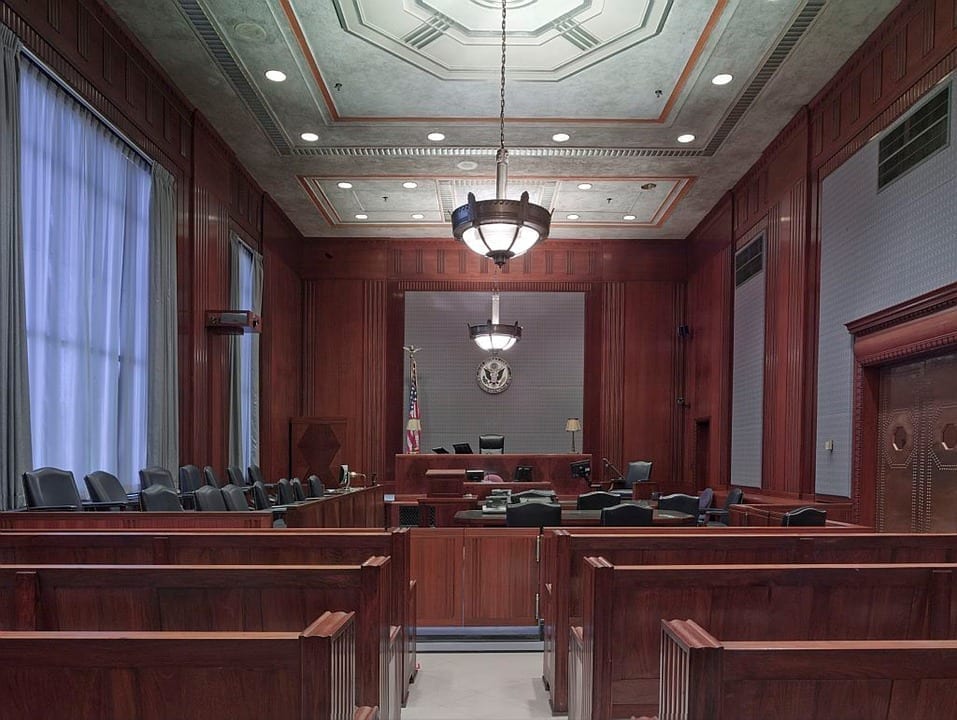The ability to identify and leverage additional resources is a mark of a thorough defense lawyer.
If you’re facing criminal charges, it’s important to find a criminal defense lawyer and law firm that can best represent you. Whether you’re dealing with minor infractions or serious criminal accusations, having a skilled and experienced criminal defense lawyer is essential.
But what exactly makes a lawyer good at defending clients in criminal cases?
1. Deep Understanding of Criminal Law
A great criminal defense lawyer must have an in-depth understanding of criminal law in the local jurisdiction, including its nuances and complexities. Criminal law is vast, covering areas like misdemeanors, felonies, drug offenses, white-collar crimes, and more.
A lawyer with comprehensive knowledge of criminal law is better equipped to assess the charges, identify potential defenses, and spot inconsistencies or loopholes in the prosecution’s case.
Beyond familiarity with the law itself, a lawyer must keep up with new legislation, rulings, and legal precedents. Criminal law is not static; it evolves as courts make decisions, and as new laws are introduced, so a strong defense attorney stays on top of these changes.
This expertise enables them to provide accurate legal advice and devise cutting-edge defense strategies.
2. Problem-Solving Skills
Crafting an effective defense strategy requires critical thinking and the ability to solve problems quickly and efficiently. Criminal defense cases are rarely straightforward, and they often present unexpected challenges.
An excellent lawyer is creative in finding solutions, whether it’s negotiating a plea deal, identifying inconsistencies in witness testimonies, or challenging procedural mistakes made by law enforcement.
A lawyer with sharp analytical skills can foresee possible outcomes and prepare accordingly. They know when to push for a dismissal, when to negotiate, and when to take the case to trial. Their strategic planning ensures that they remain one step ahead, providing the best possible defense.
3. Communication Skills
If they can’t communicate with you, then can’t communicate well in court.
Communication is at the heart of a good lawyer-client relationship. A strong criminal defense attorney must be an exceptional communicator in various ways.
Firstly, they need to explain complex legal concepts in a way that clients can easily understand. Legal jargon can be overwhelming, and part of a lawyer’s responsibility is ensuring their client is fully informed about their case.
Secondly, they must be persuasive communicators in the courtroom, able to present arguments clearly and convincingly to judges and juries. Whether delivering opening statements, cross-examining witnesses, or presenting closing arguments, their ability to articulate their points can significantly impact the outcome of a case.
Lastly, negotiation is key in many criminal cases, and a skilled defense lawyer can negotiate effectively with prosecutors to reduce charges or secure more favorable outcomes for their clients.
4. Strong Investigative Skills
A good criminal attorney doesn’t just rely on the information presented by the prosecution. They conduct their own investigations, scrutinizing police reports, gathering evidence, and speaking with witnesses to uncover every possible detail that could help their client.
By digging deep, they often find new angles or information that can shift the direction of a case entirely.
This level of investigative rigor requires not only legal knowledge but also the ability to collaborate with experts such as private investigators, forensic specialists, or other professionals relevant to the case.
The ability to identify and leverage additional resources is a mark of a thorough defense lawyer.
5. Understanding of Local Laws
While general knowledge of criminal law is crucial, familiarity with local laws and court procedures is just as important. Each jurisdiction may have its own rules, regulations, and norms that affect how a case proceeds. A defense lawyer who knows the local courts, judges, and prosecutors may have an advantage in navigating the system.
For instance, understanding how certain judges tend to rule or how specific prosecutors handle plea deals can inform a lawyer’s strategy. Moreover, knowing the deadlines, documentation requirements, and procedural intricacies of the local court can help prevent costly delays or mistakes in a case.
6. Persistence
Criminal cases can be lengthy and demanding, and it takes a persistent, determined lawyer to see a case through to the end. A good defense attorney is tireless in their efforts to protect their client’s rights and achieve the best possible outcome.
They don’t back down when facing challenges and are willing to fight for their clients, whether that means going to trial or pursuing an appeal if necessary.
This perseverance often involves a readiness to counter strong opposition, including aggressive prosecutors, complicated evidence, or public opinion. A good defense lawyer stands by their client, determined to provide the best defense no matter how difficult the case may be.
7. Empathy
Dealing with criminal charges can be an overwhelming experience for anyone. A lawyer who shows empathy and compassion towards their client helps ease the emotional burden of the situation.
While maintaining professionalism, a good criminal defense attorney must also offer support and understanding, helping clients feel heard and valued.
Empathy also plays a role in how a lawyer approaches the case. Understanding the client’s unique situation, background, and the impact the charges have on their life allows the attorney to tailor their defense strategy in ways that are not just legally sound but also aligned with the client’s personal circumstances.
8. Confidence in the Courtroom
Having a lawyer who can confidently advocate on your behalf in the courtroom is a game-changer. Criminal trials are high-stakes situations, and a lawyer’s confidence can influence how judges and juries perceive their arguments.

A strong defense attorney remains composed under pressure, thinks on their feet, and knows how to present a compelling case.
This confidence is built on a foundation of thorough preparation and experience They know what to expect during a trial and have the poise to handle surprises without losing focus.
9. Personalized Attention to Every Case
Each criminal case is unique, with its own facts, legal questions, and potential consequences. A good lawyer doesn’t use a one-size-fits-all approach but instead tailors their defense strategy to the specifics of the case and the needs of the client. This personalized attention ensures that no detail is overlooked and that every possible angle is explored.
Clients should look for a lawyer who is dedicated to understanding the intricacies of their case, rather than taking a cookie-cutter approach. When a defense lawyer customizes their strategy, it can lead to more effective results and a stronger defense.
Your criminal case isn’t something to take lightly. Spending the additional time to find the right criminal defense lawyer that can get the result you want will be well worth your time.


Join the conversation!